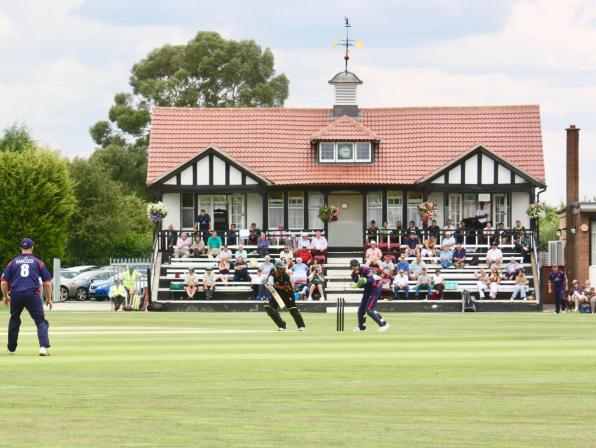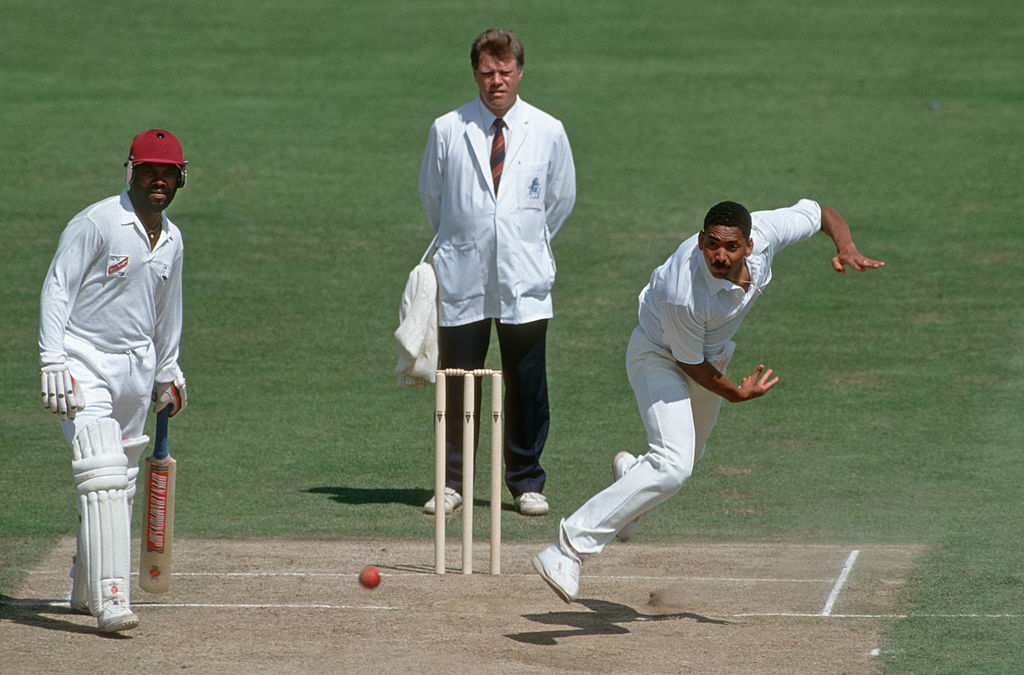Rain stopped play
Max Bonnell | May 26, 2023

At some point during the Sydney Test, as the light faded and the drizzle closed in, someone on the ABC radio commentary suggested: “we’d have been off ages ago if we were playing in England.”
Really? Where did it come from, this myth of effete, fussy English umpires, anxious to bustle the players from the field as soon as a cloud appeared on the horizon? It’s a weird view of the world, based – as far as I can tell – on some distant memories of Dickie Bird being officious, and a belief that Australian cricketers are somehow more macho about batting in the dark than their English counterparts.
But it isn’t consistent with my experience of playing in England, which is that unless you play when it’s wet and dark, you seldom play at all. In 1985, I turned out for Stourbridge in the Birmingham League. Stourbridge is in the West Midlands, on the fringes of the Black Country, named for the thick seam of coal that sustained the region’s mining communities for a couple of hundred years. The locals speak a strange dialect of elongated vowels and swallowed consonants, which is recognisably English but at the same time impossible to understand.
Before the League season began, we played a single friendly match, against a team called Hagley. Hagley wasn’t in the League, but played its game at Hagley Hall, a magnificent Georgian building belonging to Lord Lyttleton. Since one Lord Lyttelton or another was often the President of the Worcestershire County Cricket Club, the grounds of Hagley Hall contained a perfectly-manicured cricket ground. That was where we played our first match in April, which I nearly called a warm-up game, except that would be stupid, because the temperature never rose above one degree.
Everyone else seemed to know what to expect. When we reached the dressing room, everyone else in the team carefully changed into full-length thermal underwear. I looked through my cricket bag. I had a bat, pads and gloves, but no thermal underwear. And I had no intention of walking round the room asking if anyone had some I could borrow. So I improvised. I wore a tracksuit under my whites and two jumpers over them. I was still freezing.
We batted first, and I spent the innings – in which I wasn’t required to bat – pacing around while drinking cup after cup of very hot tea, trying to keep my body temperature at some sustainable level. Our urbane opener, Barry, slogged sixty-odd runs past shivering, tentative fieldsmen. Barry owned the local car dealership and was said to be very prosperous. Certainly he looked the part: he had a glowing, golden tan, having just returned from a holiday in Barbados. Anyway, after batting for as long as was socially acceptable, we declared. Afternoon tea was very heavy on cucumber sandwiches. And then we went out to bowl.
We had a very young Phil DeFreitas in the side, so naturally he had choice of ends. It was almost the only time we saw him – two weeks later, he was called up by Leicestershire and never looked back. The Black Country boys in our side pronounced every vowel in his name as a separate syllable, so it took them several minutes to say it. Naturally, he chose to bowl with the sharp breeze behind him. Which meant that I bowled into it.

Phil DeFreitas
I had spent most of the tea break, and all of the first over, limbering up, but it would be wrong to say I raced in to bowl. I never covered the ground very quickly anyway, but with about five layers of clothing, it was all I could do to get to the crease and release the ball in the approximate direction of the batsman. The second time I did this, I turned at my bowling mark, took two short paces at the top of my run, and felt a harsh, wet slap in the face.
It was snow.
Now, the wind was fairly brisk, and that meant that the snow didn’t drop gently and vertically, like the snow in movies about Christmas. Instead, it came pelting down hard, and at a 45-degree angle, straight into my face as I tried to bowl. I was used to bowling into the wind. Bowling into the wind was what I did. But this was bowling into a blizzard. Yet we played on as though all of this was absolutely normal. In about my third over, I lobbed down a ball that began its life as a wicked outswinger only to end up as a slow half-volley, and some poor batsman slapped it straight to Barry at mid-off. He caught it, to his credit, and then showed us all the bruise that came up – on the back of his hand. Not long after that, we went off, because the snow was starting to pile up on the pitch. Back in the pavilion, I had just started to peel off my first layer of jumpers when someone shouted, “They’re going back out.” The snow stopped, the groundsman took a broom out to the middle and swept it off the pitch, and back went the umpires. We played for another fifteen minutes before the snow returned, the light vanished, and everyone agreed that a draw would be a very civilised outcome.
Things got a touch warmer after that, but not much better. It was 1985, England’s wettest summer in 27 years. Our home ground was the War Memorial Athletic Ground in Amblecote, a utilitarian field surrounded by red brick terraces, red brick semis, and a street full of identical, modern bungalows – in red brick. But England is a compact place. Just a mile or so away were the gently rolling Clent Hills, and behind them, the lush green countryside of Worcestershire. The Clent Hills played an important part in our season, because the local rule was that rain never stopped play while you could still see them.

War Memorial Athletic Ground in Amblecote
Sometime in June, we played a game against Dudley. It was Dudley’s home game, so it was played on our ground on a Sunday. This makes no sense, so I should explain that early in the season, Dudley’s home ground, where cricket had been played for over 130 years, collapsed into an old coal mine. A vast hole forty feet wide opened up on the pitch square. So Dudley had nowhere to play, and their home games that season took place on Sundays on their opponents’ grounds. They lost players as a result of this, and the team that turned up to play us was led by a gnarly veteran, Jack Sedgley, locally famous for running himself out for 95 in a County Championship match in 1960.
We bowled, and soon as we started bowling, the rain began. It rained steadily through the entire Dudley innings. The ball was waterlogged by the fifth over, but the umpires wouldn’t hear of changing it. There’s a certain skill involved in sending down a heavy, soft, slippery ball in such a way that it lands near the stumps, but once the ball is saturated, you can’t hope to do anything better than that. Dudley had a number of players on county contracts, and there was some obscure League rule (invented for the purpose of these Sunday games) about which of these could or couldn’t play in the rescheduled fixtures. One of our committee men somehow got it into his head that Dudley had breached this rule, and he sat in the warm shelter of the pavilion for the whole game, shouting at Jack Sedgley. “You’m a feckin cheat, Jack! Yurr orways was! Feckin cheat!” For hours. Hours during which the rain did not relent. My boots were full of water, my socks soaked, the ball a limp and soggy sponge. And all the while, the umpires insisted, “But we can still see Clent ‘ills”.
I suppose the conditions were difficult for batting, too. They must have been, since I took five wickets that day. I can’t tell you who they were: it was too dark to tell for sure. Normally when you take five wickets, it’s a cause for celebration, but I’ve never taken five more useless, futile poles. When the umpires finally admitted that the Clent Hills were gone for good, I had the ball in my hand, half way through an over. I turned towards the pavilion and neatly, viciously and with quite surprising accuracy, drop-kicked the ball into the stand. We wouldn’t be needing it again.
I’m not sure what all this proves. Except for this: don’t tell me they play through snow at Pratten Park, or stay on at Howell Oval until the mountains disappear.








